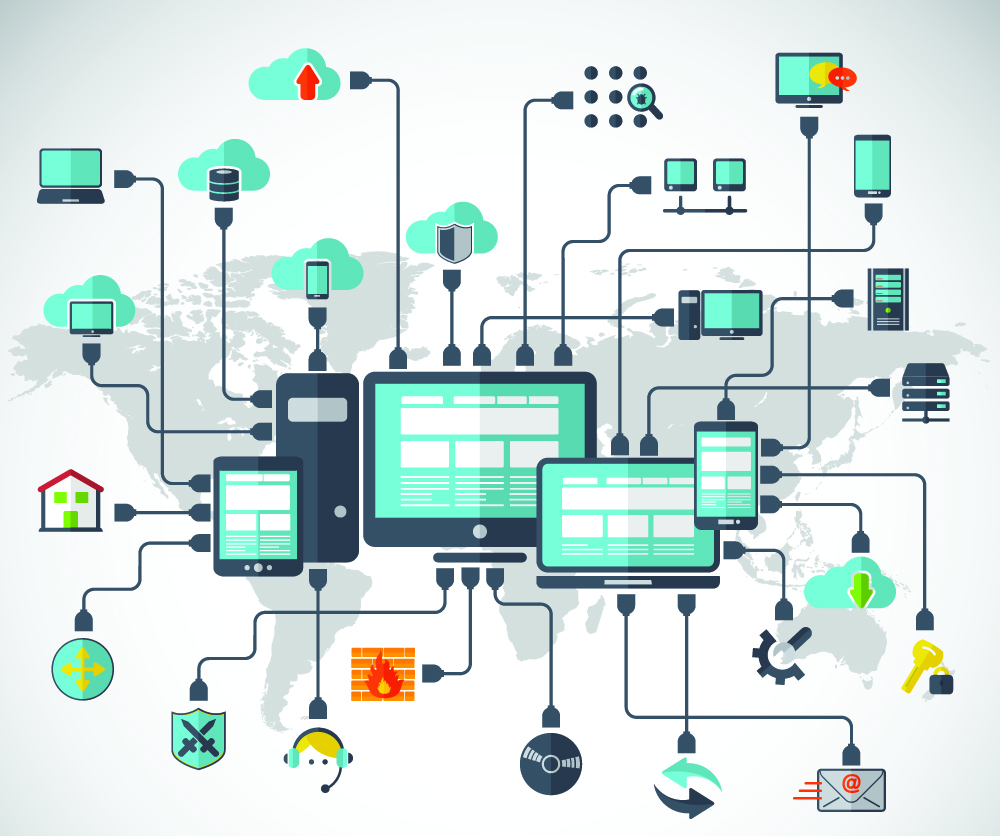When you're traveling or otherwise away from your home or office and carrying a laptop or tablet computer, you should take the same care with your data as you do with your wallet and other valuables. Some of the same protections you take while stationary apply to traveling. But some additional protections are worth their effort. The most commonly recommended traveling protection is to use a virtual private network (VPN) service.
A public VPN creates a private network within the larger public internet, as if you were connecting through a fiber or coaxial cable that linked only your machine and the machine you're connecting to. The main benefit is increased security, and it accomplishes this through dedicated servers and encryption.
When you send email or view a website through a public VPN, that data travels through a server computer of the VPN company you're using. Thus, it seems to others as if it's coming from that computer, not yours. Through VPN software installed on your computer as well as the server computer, the data also is encrypted, so if it's intercepted it's impossible to read.
VPNs are useful because the free or low-cost Wi-Fi provided by many hotels, airports, libraries, bookstores, and coffee shops typically doesn't provide a secure connection. A secure connection requires you to type in a security key or password provided to you by the facility. The best Wi-Fi security today is WPA2, with the earlier WPA a step behind. WEP is even less secure. And many facilities providing free Wi-Fi provide only unsecured connections, with no password required.
With your own internet connection and unsecured Wi-Fi, neighbors or passing drivers could log on to your network and use your internet connection, which at the least could slow you down.
With the internet connection at a coffee shop or airport and unsecured Wi-Fi, other users of the particular Wi-Fi network could intercept and read your data, with the right software. Such software is called packet analyzers or "sniffers." It serves the legitimate purpose of allowing companies to analyze their network traffic to best use its bandwidth or to monitor intrusion attempts. But a bad guy sitting two seats down from you at the coffee shop can use that same software.
Three highly recommended VPN services, getting good reviews in the computer press and anecdotally from fellow users, are:
- Hotspot Shield ( www.anchorfree.com)
- WiTopia ( www.witopia.net)
- Private Internet Access ( www.privateinternetaccess.com)
With some such VPN software, a free, limited version exists. But when you're protecting yourself in this way, it probably makes sense to spring for the beefed-up pay version. You simply download and install the software before you use a public Wi-Fi hotspot. You can keep the software running all the time, or you can disable it temporarily when you're back to using a secure business or home connection. Other benefits of VPNs are anonymous browsing and access to content in foreign countries that might be restricted to U.S. users. In some cases, with VPN vendors that have lots of servers, your internet speeds might increase. In other cases, speeds can slow down slightly or remain about the same.
Sometimes a VPN can cause problems in connecting with websites or retrieving email. In such cases, all that's typically needed is temporarily disabling the VPN software and immediately turning it back on again. Other times, when you've paid for the full, fast version of a VPN service, it might mistakenly indicate you're using the limited, slow, free version. If this happens, try logging on to the VPN vendor's website, logging off, and logging back on again.
Even with a VPN service, it's important to use good passwords. Don't reuse the same passwords. Long passphrases are more effective than short words.
